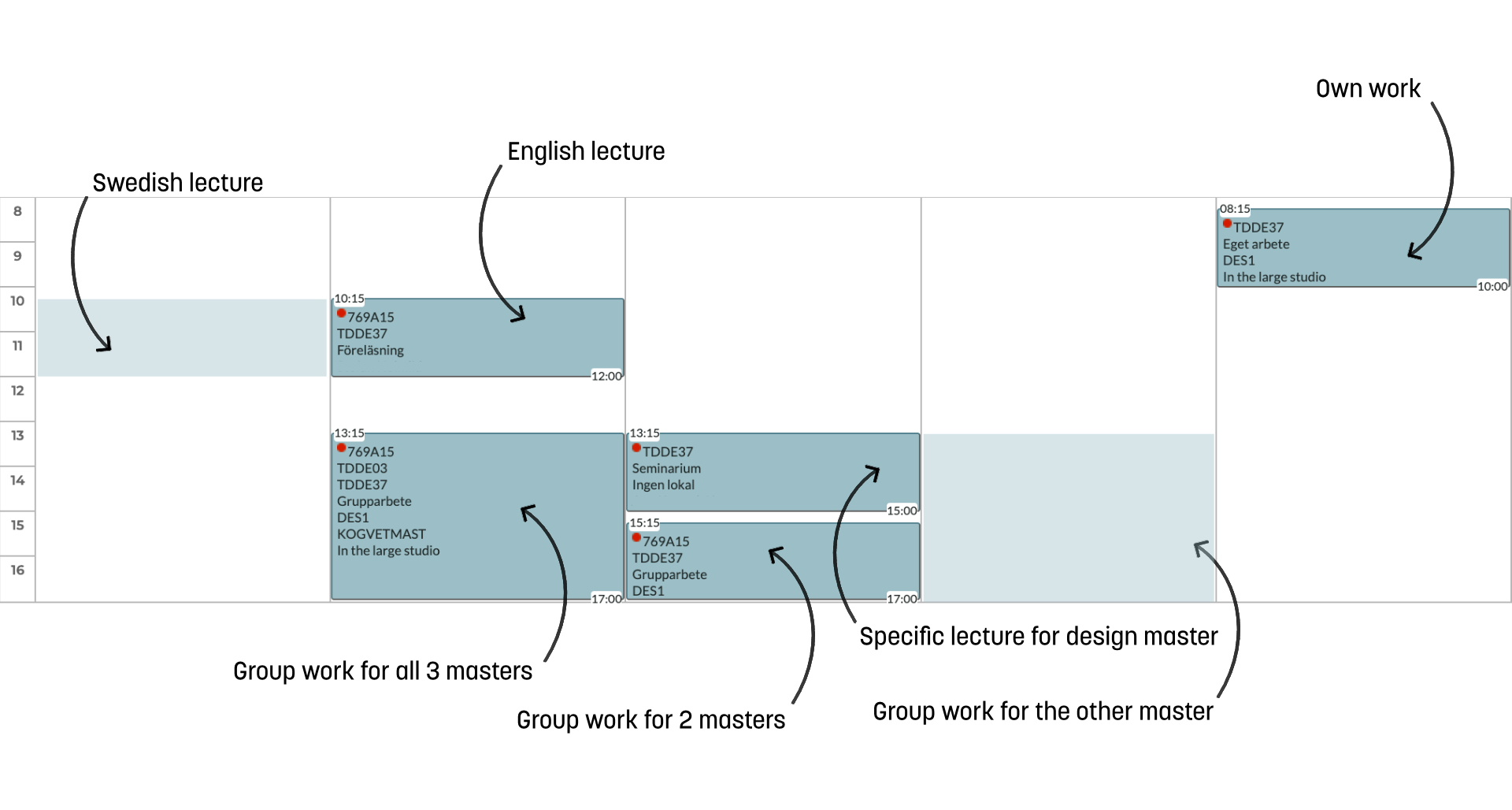February 19, 2022
Study differences - Group work
Group work isn’t new for me.
But what is different here is the amount of group work. In every class, no matter how big or small, there is some group work somewhere. It can be for a full-on semester-long project with 7 members from different masters, writing papers for seminars with 2-3 other students to simply doing a group exercise or reading together.
To make group work easier, some classes add time slots dedicated for it in your timetable. Here is an example of a 12-credit class that I have throughout the semester (dark blue are what concerns me, light blue concerns other masters in the same course).

In most of the groups, we start by drafting up a group contract. Seems a bit much? Actually, it is not so much for policing (especially when you get to choose who you work with) but a good tool to decide on how we want to work together and what we want to achieve in this group work.
Here is what you usually find in it:
Team members
What is our goal?
What would we like to achieve? What is our goal for ourselves? What do we want to present?
This is an important point. You have to make sure everyone is aiming for the same thing or else tensions will appear. And it doesn’t have to be limited to what your course guide says.
For instance, in our 12-credit class, we decided we wanted a ‘portfolio-worthy pass’ and to deliver something meaningful to the municipality.
Routines & meetings
How often should we have meetings? What happens if someone can’t attend? How many times is ok to miss a meeting?
Once again, important questions. They seem like details but can really make or break a team
In a team of 7, scheduling can be quite a hassle. We decided to meet every Tuesday from 13 to 15 on campus (with a hybrid possibility).
Communication
How do we communicate between our meetings? What do we do if we have a conflict or disagree about the work? How do we make decisions?
Our project involves a lot of documentation, so we decided on a system to keep everything tidy. And what channels to use for informal discussions.
Roles & responsibilities
How do we divide the work? Who is responsible for what part?
What are our individual strengths?
I think this part is quite interesting because it allows the team to be aware of what strengths it has and build on that. You also know who you can turn to if you are struggling with something they master.
What are our expectations of each other as group members?
If a group member doesn’t do their job, how do we handle it?
Again, here, the purpose is not to push down others but to keep them accountable. I would advise you to always communicate before taking measures, they might just have a bad week or are overwhelmed by their tasks. See how the group can reach out to them. It will be a helpful skill when you start to work.
Signatures
Just to make it a bit binding! 😉
In that group, we were quite lucky to have a 3-weeks exercise before beginning the main project. This allowed us to have feedback time to reflect on what worked and what didn’t work as a team. A need for a clear structure and to have fun in the project emerged, which we will keep in mind!
In smaller groups, mainly composed of only international students, we sometimes skip this group contract. However, I have noticed a great improvement in group work when we have one, and a lot of slouchiness when we don’t because of misunderstandings in the way we work.
Have you ever made a group contract? Do you want to try it?
/Agathe




